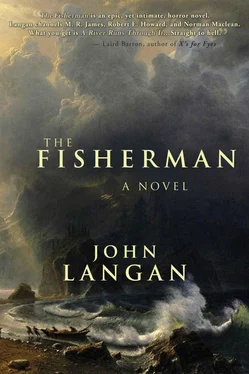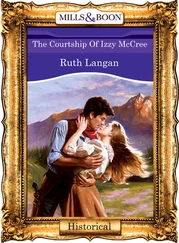The following fall, that changed, the new decade showing its true face in fire and ruin with the destruction of the Twin Towers, the attack on the Pentagon, the crashing of Flight 93. Sadie was twelve, old enough that shielding her from the horrors of that morning was impossible. Her mom taught ninth-grade history at Huguenot High, so I figured she’d have a handle on how to explain the geopolitics that underlay the attacks. The why of it was a bit trickier. Sadie asked me about it the next Saturday, when we walked to the stream behind our houses. Her mom, Sadie told me, said that the terrorists believed they were doing God’s work and would earn themselves a place in heaven. Her dad said they were evil, hateful. From what she could tell, they had to be insane. How about me? she said. What did I think?
I didn’t know, I said. I wasn’t sure I understood enough of all that was involved to speak with any kind of authority about it. But from what I knew at the moment, the best I could tell was, if the men responsible for this carnage intended it for some greater purpose, then their means had hopelessly defiled their ends.
I half-expected Sadie to ask what that meant, but she did not.
The years that followed the attacks, which seemed to echo and amplify their violence, were marked by changes in the weather. The very atmosphere seemed more turbulent, prone to storms that dumped record-setting amounts of rain on us on a regular basis, swelling our neighborhood stream up and over its banks. Could be, the rough weather was part of a larger cycle. If that was the case, then we’d entered the next phase of it, because every few months, it felt like, the local streams and rivers flooded. The Svartkil spread over the fields to the west of Huguenot, forming a great lake which required anyone on its opposite shore who needed to drive to Huguenot to take a considerable detour, turning what should have been a ten- or fifteen-minute trip into an hour-plus trek. My house was situated high enough above the flood plain for me not to be too nervous about the water rolling over it. The principle threat to me came from my little stream, which upon occasion burbled across the field separating it from my place and surrounded me with a good six inches of water. This was how I discovered that my basement had been only partially water-sealed. Fortunately, there wasn’t much of value down there, and Oliver had a wet-vac he loaned me. Sadie suggested I should have left the water in the basement and stocked it with fish. I feigned exasperation with her, but the image of that water remaining under my floorboards made my palms sweat.
What the meteorologists would designate a hundred-year flood occurred three years after my return to fishing. It was mid-October, that point when the warmth that summer lent to autumn is nearing its end. The husk of what had swelled to a Category 4 hurricane as it roared through the Caribbean, but which had worn itself down to a tropical storm as it trudged north through the Carolinas and Virginia, limped into the sky, bringing with it a day and a half of torrential rain and gusting winds that cleaned what leaves remained on the trees from their branches.
Sadie and her family were out of town, driving through the Midwest on a tour of prospective colleges for her older sister. I had assured Oliver and Rhona I’d keep an eye on their place for the eight days they were away, which, since they owned no pets save a goldfish whose tank Sadie had transferred to my kitchen counter, was an easy promise to keep. I collected their mail, and was on hand in case any packages required signing for. (None did.) In the hours prior to the storm’s arrival, I toured their yard, picking up anything that seemed prone to blowing or floating away and carrying it into their garage. I’d already done the same for my place, but after I was finished with theirs, I gave it one last circuit before retiring inside.
I was reasonably well-prepared for what I assumed would be the inevitable loss of power the storm would cause. I had candles in candle-holders stationed in the kitchen, living room, bathroom, and bedroom, with a box of matches set beside each candle. My cupboards were stocked with plenty of non-perishable foodstuffs. There was a stack of library books next to the living room couch and another beside the bed. My transistor radio was running on fresh batteries and I had several unopened packages in reserve. There was nothing to do but wait.
To my surprise, I didn’t lose power at all during the storm. From late Wednesday, throughout the night, until Thursday afternoon, waves of gray clouds, bulled across the sky by the wind, emptied their cargo of rain. The Svartkil climbed its margins and sprawled across the farmland west of Huguenot, submerging the portion of 299 that traversed it, as well as the southern reach of Springvale Road. Water swirled around the farm stand on 299, lifting the pumpkins waiting to be bought for jack-o-lanterns and floating them off in the direction of Wiltwyck. Trees that had been swept into the Svartkil upstream jammed under and then against the bridge out of Huguenot. Closer to home, the stream behind my house spread into a vast shallow lake from which my house and those of my neighbors rose like blocky islands. Between my place and Sadie’s family’s, the water ran a foot deep, except for a dip on my side of their driveway that plunged me to my thighs when I waded over to check their house for flooding. The water was muddy, flowing against and around our houses, spinning the leaves and branches riding its surface off in wide whirlpools. Every so often, an object I hadn’t seen before — a white plastic barrel, a red and gold dragon-kite wrapped around a log, the carcass of a deer, legs stiff and turning up to show its belly bloated and white — floated in front of the living room window, and I watched as it bobbed along, heading east to where the lake that had emerged behind my house slid down a long incline to join the Svartkil. Had Sadie been present, she would have been at my door, her rod and tacklebox in hand, ready to cast off my back porch and see what our luck and the storm brought us. I left my rod undisturbed, preferring the classic western marathon on TCM. I watched John Wayne and Jimmy Stewart and Gary Cooper deal justice in an arid land, and did what I could to steer my thoughts from what might be swimming the waters outside.
I have to admit, once the rain tapered off, and the wind fell away, and the sun appeared, and my lights were still on, my TV still broadcasting, I sighed with relief. Yes, it would be a good two or three days until the water started to recede; in fact, the chances were, it would rise higher, first, as the flooding upstream pushed its way here. But there was nowhere I had to be, and as long as I had electricity, I could ride out my temporary isolation in comfort.
Which, needless to say, was the exact moment the lights flickered, dimmed, brightened, and went out entirely. I sighed again. At least there was sufficient daylight left for me to make my way through the house, lighting candles. And at least I had my transistor radio, and the college station was playing its bluegrass show. It was the retreating sun, I told myself, that made the water encircling the house appear dark, in places, black.
As a distraction, I started to prepare dinner. At the back door, the portable propane stove I’d purchased for an Adirondack fishing trip that had never happened leaned against the wall. I carried it out onto the porch and opened it on the picnic table. The evening air was tropical. I screwed in the new gas canister I’d picked up the day before yesterday, turned the valves, pressed the starter button, and was rewarded with a puff of blue flame around the burner ring. Leaving the back door open but the screen door closed, I returned inside for the frying pan, the can of cooking spray, and the eggs I planned to scramble. The frying pan was on the stove where I’d left it. I picked it up and set it on the kitchen table. I unsealed the refrigerator long enough to snatch a quartet of eggs from the door and hurried it shut. The eggs I set in the pan. A little cheese would go nicely melted on top of the scrambled eggs, so I reopened the refrigerator door and grabbed a couple of slices of American. The screen door slapped in its frame; the wind, I guessed, shoving it. The cheese slices joined the eggs. All I needed was the cooking spray, but it was not in its usual place, next to the olive oil and the canola oil. The candles glowing on the table rendered the interior of the kitchen almost fuzzy, like in a Rembrandt painting. There was a group of cylinders gathered on the countertop on the other side of the table, cans of spray paint I’d set there in preparation for a touch-up job on the porch I hadn’t found my way to, yet. I crossed the room, and there was the cooking spray, ranked among them. I had no idea what it was doing there.
Читать дальше












